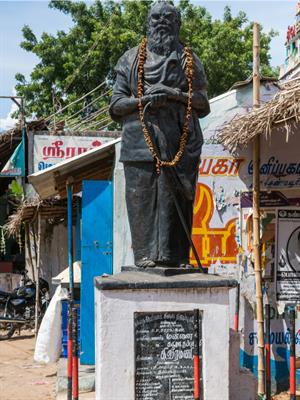
PUMPA - SMART LEARNING
எங்கள் ஆசிரியர்களுடன் 1-ஆன்-1 ஆலோசனை நேரத்தைப் பெறுங்கள். டாப்பர் ஆவதற்கு நாங்கள் பயிற்சி அளிப்போம்
Book Free DemoIntroduction:
1. Women's lives in India have been rising and falling like a wave in the Sea in India. From the early days to the present day, they struggle to find their feet in all walks of life.
2. The Ancient days of women in India were the heyday for them as they were respected equal to the patriarchs of the society and were even worshipped to an extent. Slowly their respect and status started to dwindle due to the rise of patriarchal dominance.
3. Women became a subject of second priority, and their voices soon became unheard in the society of males. They were denied their rights to speak, participate and perform in society.
4. Post the invasions of the foreign powers, they exerted their dominance, and subjugated women and treated them like slaves.
The Social Evils and Women:
1. Women right from the Post Vedic period were subjected to all types of social evils and embarrassment like Sati and female infanticide, which grew leaps and bounds despite society's progress.
2. Despite the progress and the advancements, social constraints and stigma on women grew even further with female feticide, the system of Devadasi further crippled the status of the women.
The Period of Reformation:
1. Post the advent of the European powers, women were subjected to various tortures and evil practices, which were later thwarted by the educated intelligentsia of India.
2. The Reform movements slowly gained momentum as they began to empower women by their thoughtful speech, writings and establishment of new institutions to support their growth.

Statue of Periyar
Prominent leaders like Ishwar Chandra Vidhyasagar and Raja Ram Mohan Roy played a prominent role in empowering the women of India.
The Sati abolition act and Widow remarriage Act of \(1856\) emancipated women to voice their concerns.
Regional leaders like E.V. Periyar, Muthulakshmi Reddy, etc., helped women acquire their rights in Tamil Nadu.
Women Post Independence:
The beginning of the \(20^{th}\) century witnessed greater involvement of women in the freedom struggle leaders like Usha Mehta, Aruna Asif Ali and Bikaji Cama played a pivotal role in the freedom struggle.
Reference:
Statue of Periyar - Claudine Van Massenhove / Shutterstock